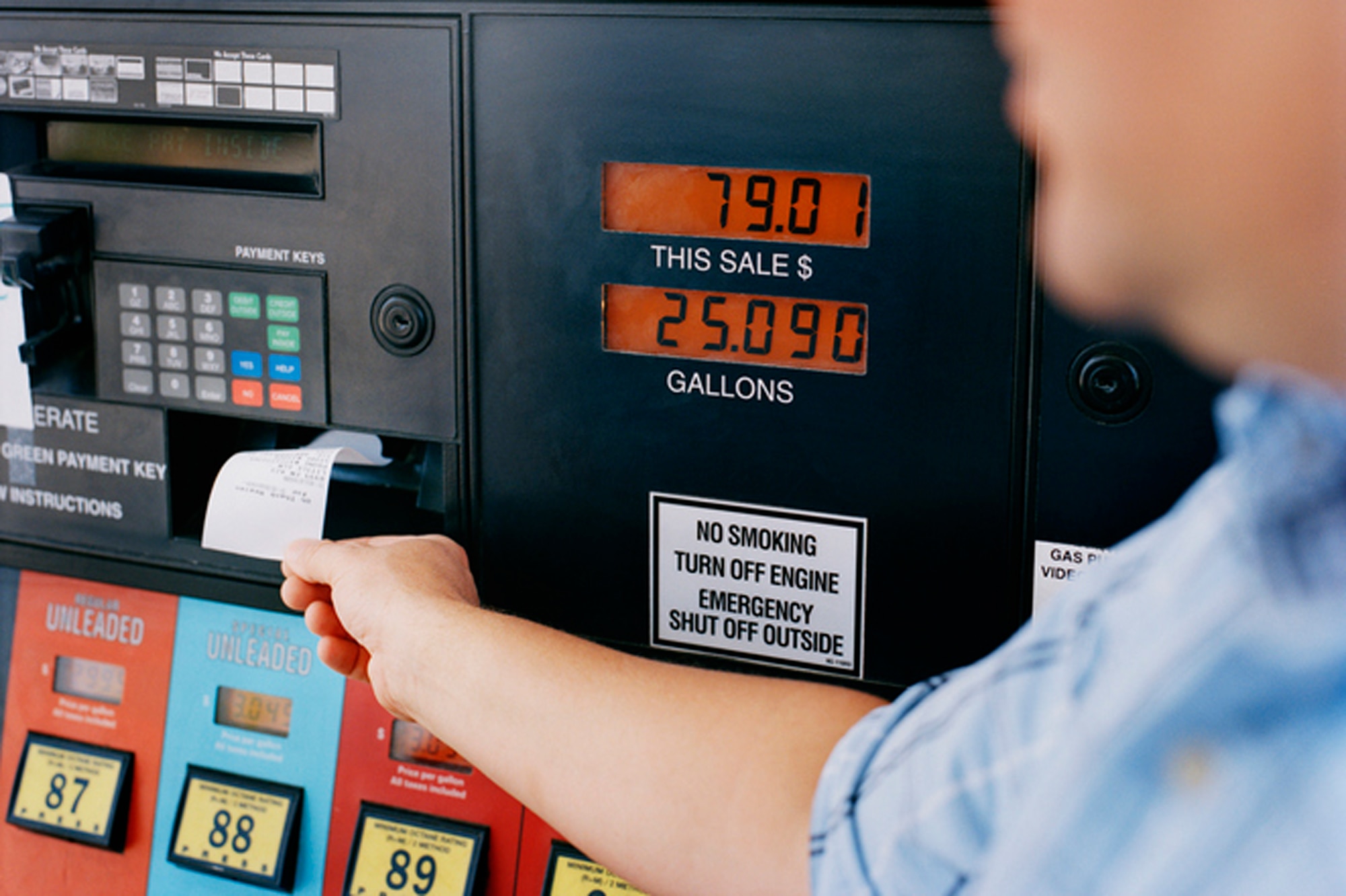6 Tips to Beat High Gas Prices
Here's how to save money at the pumps without purchasing a more fuel-efficient new vehicle.
 Getty Images
Getty Images
Gas prices might be sky-high, but there are things that you can do in terms of maintaining your existing vehicle and changing your habits behind the wheel that can help keep your fuel costs more reasonable.
Follow these tips, and you may not have to trade in your automobile for a new, more fuel-efficient gas, hybrid, or electric vehicle to improve your fuel mileage and spend less on gas.
1. Check Your Tire Pressure
Underinflated tires cost drivers 0.6% fuel efficiency at the pump, with the worst offenders checking in at a 3.0% deficit. With a 0.2% efficiency penalty for every 1 PSI (pounds per square inch) drop, even running a few pounds below the factory tire pressure recommendation can impact fuel economy, according to the Environmental Protection Agency. Checking tire pressure can be a cheap and easy way to reduce your fuel bill.
2. Slow Down
Despite modern improvements in aerodynamics and transmission design, it's impossible to avoid the physics of motivating a large mass like a car or truck at a high velocity. Driving faster than the speed limit almost always increases fuel consumption, and in fact, dropping your highway speed in the range of 5 to 10 mph can provide an efficiency boost between 7 and 14%.
3. Trim Your Car’s Extra Weight
Too much junk in the trunk? Every extra pound your vehicle carries on your daily commute requires burning additional fuel. Cleaning out your trunk of any unnecessary gear (sports equipment, camping leftovers, or winter survival kits come summertime) will help you save money at the pump.
4. Empty Your Roof Rack
Another commonly overlooked area of fuel economy optimization is clearing off the roof rack. If you have a cargo box, a bike rack, or even just crossbars up there, you can bet that it's hurting your mpg due to wind resistance (especially at highway speeds). The effect can be shocking, with larger boxes increasing your fuel costs by 10% to 25%. If you have to carry extra cargo outside your vehicle, consider a trailer-hitch-mounted solution instead.
5. Keep Your Engine Start/Stop Activated
If your vehicle uses an automatic engine start/stop system, you should make sure not to override it if you want to save gas. Sure, it might not be enjoyable to have the motor turn off and on during stop-and-go city traffic. Still, studies have shown it can boost fuel economy by up to 8.7%. It's worth checking to make sure you haven't deactivated your system, especially if you're driving an older vehicle with this feature.
6. Leave the Heavy Foot at Home
In the same vein as reducing your speed while driving, it's also helpful to practice smooth, gradual acceleration away from a stop, paired with a similarly-relaxed braking style if you want to save fuel. Being hard on the gas and then equally quick to slam on the brakes can cost you up to 33% on the highway and 5% in town when you fill-up. If your car has an Eco mode, it may encourage this relaxed style of driving by making the accelerator pedal less sensitive. Keeping your eyes focused on the traffic ahead of you, planning your moves ahead of time on the road, and avoiding sudden acceleration go a long way to using less fuel and saving you more money.
Written by humans.
Edited by humans.
 Benjamin Hunting
Benjamin HuntingBenjamin Hunting is a writer and podcast host who contributes to a number of newspapers, automotive magazines, and online publications. More than a decade into his career, he enjoys keeping the shiny side up during track days and always has one too many classic vehicle projects partially disassembled in his garage at any given time. Remember, if it's not leaking, it's probably empty.
Related articles
View more related articles